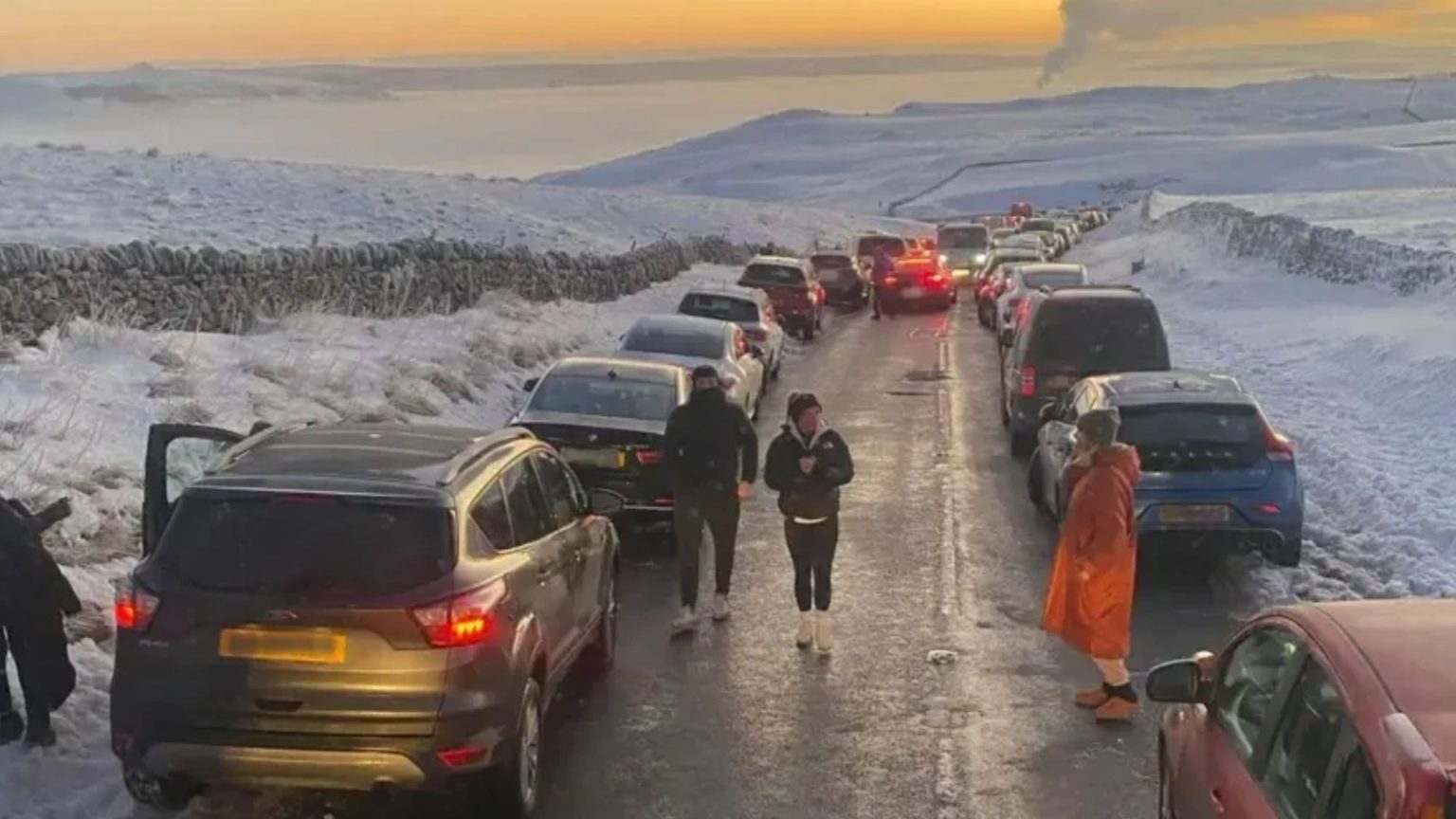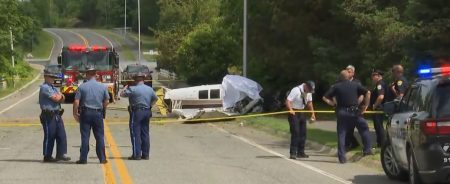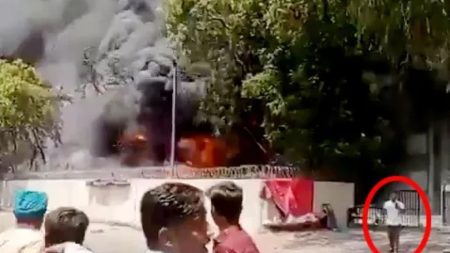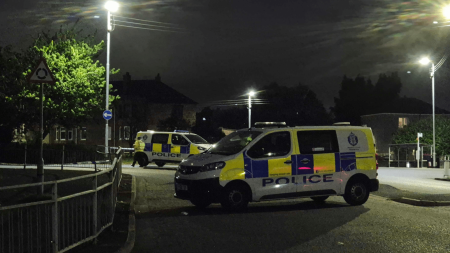The picturesque Peak District National Park, typically a haven for nature enthusiasts and ramblers, recently experienced a chaotic disruption due to a surge in visitors seeking winter recreation amidst a severe cold snap. Over 200 vehicles were found double-parked along Rushup Edge, a popular scenic route in Derbyshire, effectively blocking access for essential services, including council gritters responsible for maintaining road safety during icy conditions. This inconsiderate parking not only hampered snow and ice clearing efforts but also created a hazardous environment for other road users. Derbyshire County Council responded by issuing penalty notices to drivers who had abandoned their vehicles to pursue recreational activities in the area, and several vehicles were towed away. This incident highlights the growing challenges posed by overcrowding in popular natural areas, particularly during periods of extreme weather, and the need for responsible visitor behavior to ensure public safety and preserve the integrity of these environments.
Concurrent with the parking chaos in the Peak District, the UK grappled with a widespread cold snap that brought freezing temperatures and hazardous conditions to various parts of the country. Overnight temperatures plummeted to -13.9C in Kinbrace, northern Scotland, while freezing fog enveloped the southeast region, including Castle Rising in Norfolk. The adverse weather conditions impacted various aspects of daily life, from disrupting transportation to creating potential health risks, particularly for vulnerable populations. In a dramatic incident highlighting the treacherous conditions, a fire engine lost control on an icy road and slid into the River Taff in Cardiff, underscoring the dangers posed by icy roads and the need for extreme caution during such weather events.
The severe cold prompted the UK Health Security Agency (UKHSA) to issue and subsequently extend amber cold weather health alerts across England. These alerts, which warn of a potential increase in cold-related deaths, remained in effect until Tuesday, reflecting the seriousness of the prolonged cold spell. The UKHSA’s proactive measures aimed to raise public awareness about the health risks associated with extreme cold and encourage individuals to take precautions to protect themselves and vulnerable community members. The alerts served as a stark reminder of the potential impact of extreme weather on public health and the importance of preparedness and community support during such events.
The extreme cold snap peaked on Friday night, with the Scottish Highlands hamlet of Altnaharra recording a bone-chilling -18.9C, marking the coldest January night in 15 years. This extreme temperature highlights the intensity of the cold wave that gripped the UK and the potential for record-breaking weather events. The combination of freezing temperatures, snow, and ice created challenging conditions across the country, impacting transportation, infrastructure, and daily life for many residents. The extreme cold serves as a reminder of the unpredictable nature of weather patterns and the importance of being prepared for extreme weather events.
Fortunately, the icy grip of winter began to loosen its hold as milder temperatures were forecast for the coming days. Met Office meteorologist Greg Dewhurst predicted a return to more seasonal temperatures, with readings reaching up to 12C in the north and 9C in the south. This shift towards milder conditions brought welcome relief from the prolonged cold spell and promised a respite from the hazardous conditions that had gripped the nation. The return to more typical temperatures signaled a gradual thawing and a return to more predictable weather patterns.
The events of this period – from the parking chaos in the Peak District to the widespread impacts of the extreme cold – underscore the multifaceted challenges posed by extreme weather events and the importance of preparedness, responsible behavior, and community resilience. The incident at Rushup Edge serves as a cautionary tale about the need for responsible tourism and the potential for overcrowding to disrupt essential services and create safety hazards. The severe cold snap, with its associated health risks and disruptions, highlighted the vulnerability of communities to extreme weather and the importance of proactive measures to protect public health and safety. As the UK transitioned towards milder weather, the experiences of this period served as a valuable reminder of the importance of preparedness and community cooperation in navigating the challenges of a changing climate.











